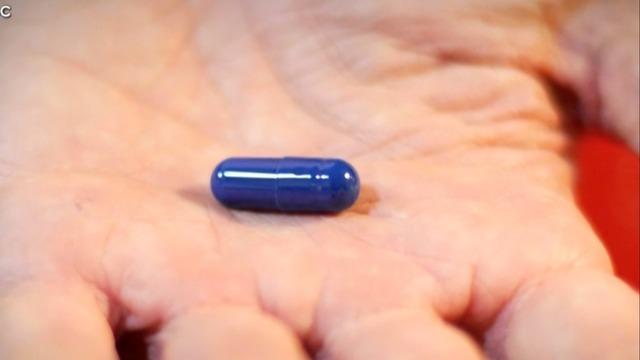▶ Watch Video: Can psychedelic therapy help treat PTSD?
Devastated by post-traumatic stress disorder, Jonathan Lubecky tried to take his own life in 2006.
“I put a loaded nine-millimeter to my temple, and I pulled the trigger,” he said. “That was the first suicide attempt that I had. I’ve had a total of five.”
After his last attempt in 2013, the Iraq War veteran began participating in a clinical trial of MDMA — the active ingredient in ecstasy — during sessions with specially trained therapists.
“MDMA mutes the amygdala, which is your fight or flight response,” Lubecky said. “Your emotions stay in this happy medium range that they need to be in for the therapy to work.”
Lubecky says he’s now living a life free from PTSD.
“I feel normal again,” Lubecky said. “My world changed. This therapy is the sole reason that my son has a father instead of a folded flag.”
Research organization MAPS Public Benefit Corporation first began clinical trials of MDMA for PTSD in 2003. It announced the findings of its latest trials this month.
“88% of the people, had clinically significant decrease in their PTSD symptoms,” said MAPS PBC CEO Amy Emerson. “67% of them lost their PTSD diagnosis.”
MAPS PBC plans to submit its latest results for publication, and, later this year, ask the Food and Drug Administration to approve MDMA as a prescription medication, in combination with therapy.
In response to potential backlash over the use of ecstasy, a lead researcher in the study said it is being administered in a controlled environment.
“It’s being administered in a very particular manner by people that are quite well trained,” said Jennifer Mitchell, MAPS PBC principal investigator, and a professor at the University of California, San Francisco. “We are not suggesting that anyone try this on their own at home, in their living room.”
Lubecky is finishing his third humanitarian mission to Ukraine after undergoing the treatment.
“Everyone said PTSD can’t be cured,” he said. “I’m living proof that that isn’t true.”
If you or someone you know is in emotional distress or suicidal crisis, call the Suicide & Crisis Lifeline at 988, or 1-800-273-TALK (8255).
Service members, veterans and their friends and family who need help can also call the Military Crisis Line at 800-273-8255 (press 1 for assistance), or text 838255. The Veterans Crisis Line is 800-273-8255.


































